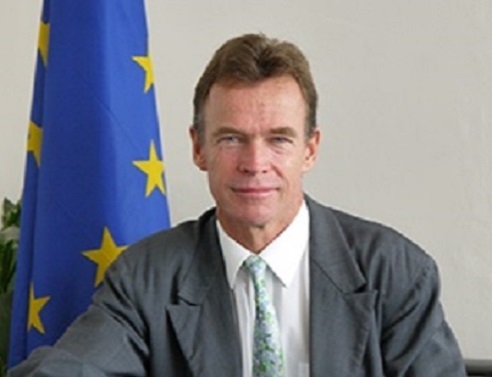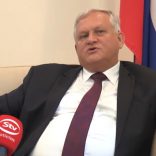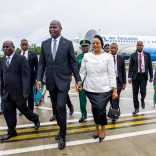Mozambique has the highest road accident rates in Southern Africa - Minister
EU ambassador optimistic about peace talks

CoM (file photo)
The European Union ambassador to Mozambique, Sven von Burgsdorff, declared on Thursday his conviction that in the coming days there will be “notable advances” which could lead to the restoration of lasting peace.
He was speaking to reporters in Maputo, immediately after an audience granted by President Filipe Nyusi, which he described as “constructive, transparent and open”.
“I am convinced that in the coming days and weeks there will be notable advances”, he said. “We are willing and ready to provide support with all means available”.
EU representative Mario Raffaelli is the coordinator of the international team that has been mediating sporadic negotiations within a Joint Commission set up between the government and the rebel movement Renamo.
But when a breakthrough was achieved, no foreign mediators were involved. As the Mozambican government had long suspected, direct talks between Nyusi and Renamo leader Afonso Dhlakama proved far more fruitful than agonisingly slow negotiations in Maputo hotel rooms.
The international mediators had been unable to secure a cessation of hostilities – but one phone call between Nyusi and Dhlakama, on 26 December, was enough for Dhlakama to declare a week-long truce and order his militia to stop shooting. A second phone call, a week later, extended the truce to early March.
The international mediators had attempted, without success, to achieve consensus between the government and Renamo delegations on the Joint Commission over questions of “decentralization” – which hinge on Renamo’s demand that it should govern the six provinces where it claims, untruthfully, to have a won a majority of votes in the 2014 general elections.
The mediators left for their home countries in mid December, and Raffaelli told reporters they would only return if they received a specific invitation from the Joint Commission.
Von Burgsdorff gave no hint as to when the next round of the negotiations might begin.
Asked about the resumption of EU financial aid to Mozambique, the ambassador said that was entirely dependent on the Mozambican government reaching an agreement with the International Monetary Fund (IMF).
The IMF suspended its programme with Mozambique last April after the discovery of well over a billion US dollars of government guaranteed loans that had been kept secret by the previous government, headed by President Armando Guebuza. These loans, to the securityrelated companies Proindicus (622 million dollars) and Mozambique Asset Management, MAM (535 million) dollars, had not been disclosed to the Mozambican public or to the country’s international partners.
Most of Mozambique’s western partners followed the IMF’s lead and withdrew financial support. In particular, all 14 countries and institutions which provided direct support to the Mozambican budget (of whom the EU was one of the most significant) suspended further disbursements.
The main IMF condition for renewing a programme with Mozambique is an international, independent audit of the loans to Proindicus, MAM and a third company, Ematum (Mozambique Tuna Company) to ascertain what the money was spent on.
The US-based company Kroll has been hired to undertake the audit. Kroll has a reputation as the foremost forensic audit company in the world, and it is expected to produce its audit report by the end of February.













Leave a Reply
Be the First to Comment!
You must be logged in to post a comment.
You must be logged in to post a comment.